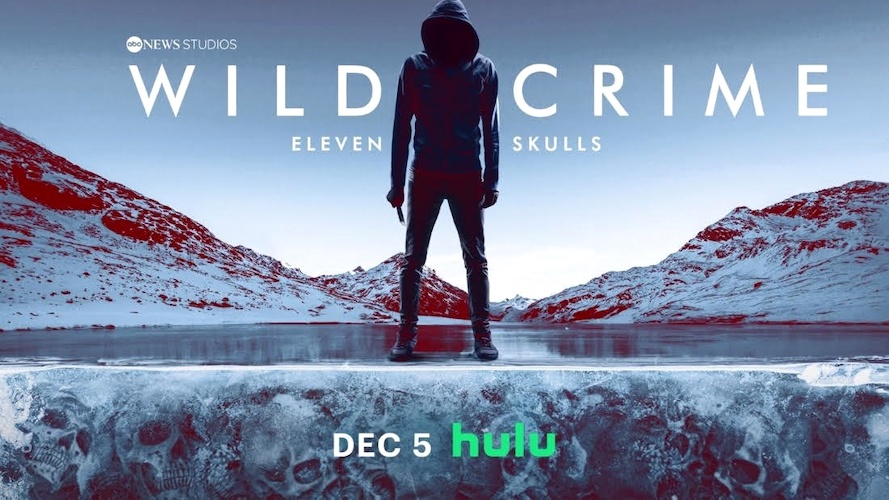Review: “Wild Crime: Eleven Skulls” Disrespects Victims and Viewers
I have had the chance to review many true crime docuseries over the past year. Rarely do they provide the nuance that these often horrific tales warrant, instead screaming gruesome details into the void with no purpose other than to purely shock and disgust the viewer. My problems have been known in the past, but nothing has been quite so despicable to me as Hulu’s Wild Crime: Eleven Skulls.
Produced by ABC News Studios and streaming on Hulu, the anthology docuseries follows crimes committed in the wilderness. In the case of season four, they apparently count all of Alaska as “the wilderness", as the series follows a drive-thru barista who is kidnapped from her place of work late one evening. (The debut episode opens with a detective explaining that with the cold weather in Alaska, residents love coffee. Thank god he said something, ‘cause I wasn’t sure.)
Quickly, the story of Samantha Koenig is pushed aside for that of a horrendous killer. Instead of having any say in the victim (or, spoiler alert, victims), they breeze over them to continually highlight this maniacal creature and his obsession with torture, sexual assault, and causing pain. As is often the case with these types of series, the initial case blows open a wide array of other cases, showcasing just how vile one human can be.
Of course, the provided story is interesting. How unbelievable that one person could not only cause so much harm, but also have no emotion about the events. Shown are frequent moments of the killer laughing and smirking when discussing brutal acts of violence. Yet, that’s all this series cares about. Showing the darkness.
I’m not here to tell you that this kind of storytelling leads to more killers i.e. the often brought up “violent video games" argument. However, I am here to explain that unempathetic storytelling is leading to lazy documentarians and abhorrent “content" within the true crime genre. There is absolutely no reason for this program to exist in its current form. Nowhere are the interviews with the victims’ family and friends framed in such a way to provide a better grasp on these human beings. They are instead just a means to an end, in which the killer is paraded around across four (!) episodes and, in a way, celebrated for his vulgar acts.
Obviously those involved in the documentary don’t support the acts of the criminal, but when every detail is presented without any blowback, it comes across as juvenile, echoing a school book report where only the bloodiest moments are brought up when summarizing.
True crime is a machine at this point in time, and ABC News knows that this type of programming is a money maker. Yet, when there is a flagrant disrespect for the deceased and a serial killer is being placed on something of a pedestal because of the sheer amount of atrocities committed, something is wrong with the formula. Money and empathy do not need to be diametrically opposed. There are quite a few recent examples of works that shed light on events with a deft hand and the knowledge that real people’s lives were taken far too soon. To try and cover up the bad storytelling with a nice little “but the victims! don’t ignore the victims!" bow is unwelcomed and, frankly, a tad offensive. In the case of season four of Wild Crime: Eleven Skulls, the true crime machine has created, yet again, an embarrassment.



